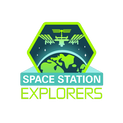|
|
Press Releases
July 2024
|

|
|
- Home
- News
- Intl Minutes
- Educational Contacts
-
Educational Resources
- SPACE Pioneers Amateur Radio Kit Initiative (SPARKI)
- Educational Partner Lessons: ARRL
- Educational Partner Lessons: European Space Agency
- Educational Partner Lessons: Estes Rockets
- Educational Partner Lessons: ISS National Laboratory Space Station Explorers
- Educational Partner Lessons: NASA
- Educational Videos
- Mid-Altitude Ballooning on ariss-usa website
- General Contacts
- Donate
- 40th Anniversary
- Site Map
 RSS Feed
RSS Feed







